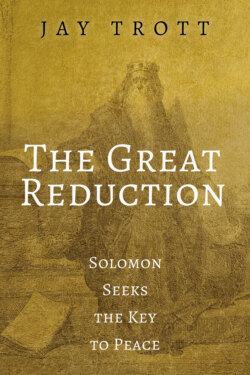Читать книгу The Great Reduction - Jay Trott - Страница 24
На сайте Литреса книга снята с продажи.
I gave myself to know wisdom and madness and folly,
and I perceived that this too is vexation of spirit.
Оглавление“Madness and folly” mean, we think, that which is contrary to reason. If someone knows that provoking his neighbor leads to great grief, and yet continues to do it, then this is “madness” in the sense that he is not listening to his own rational faculties.
Solomon wanted to know madness and folly as contrarieties to wisdom. He wanted to know what wisdom is through its difference from that which is madness and folly. But as we know, there was a bit of a glitch in this plan. Solomon himself was no stranger to folly.
For example, he was not wise enough to avoid worshiping his wives’ foreign gods. What could be more foolish than worshiping things we make with our own hands, as the prophets said? What could be more mad than to ignore what God has done for us and turn away from his everlasting love?
And yet this is just what Solomon did. It is a vexing thing to learn, as we grow older, that the madness and folly we decry in others are also seen in ourselves. In old age, wisdom and madness and folly fall into a foolish embrace.
